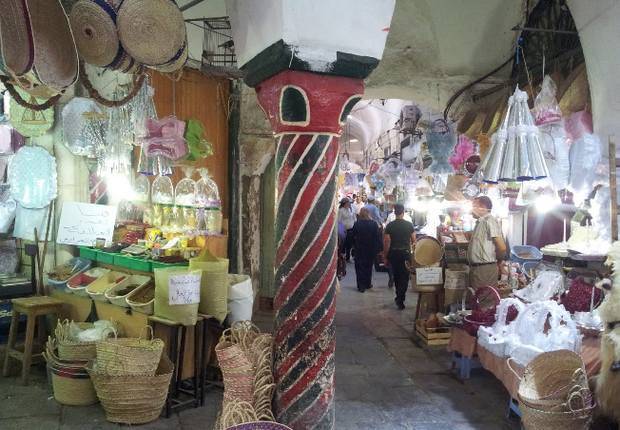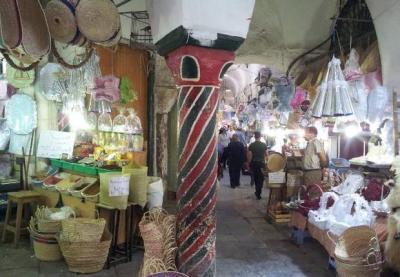The tables of Tunisians during Ramadan this year will lack many dishes and inherited customs due to the hardships of life amid soaring prices and the scarcity of some essential goods in the market. Aliya Ousslati, a housewife who was shopping in a store in the Ben Arous area, stated that she will have to forgo preparing some traditional types of bread due to the absence of flour and sugar in the market. She also mentioned that she won't be making certain types of sweets like "Samsa" and "Bouza," which used to be staples at her table, due to the high prices of dried fruits, in addition to giving up making some costly tajine and brik dishes like "Brik El-Denoni," passed down through generations, as well as seafood dishes.
In an interview with "Al Arabiya.net," Aliya indicated that rising prices have strained the family budget, despite financial support from her son living in France. She explained that she is economizing on expenses to provide basic food items such as dates, milk, eggs, oil, meat, vegetables, fruits, and pastries to prepare main meals like soup, which is always present at Tunisians' tables throughout Ramadan.
This year's Ramadan arrives while Tunisia is facing a supply crisis and a shortage of food items in markets, following the worst agricultural season in decades due to a lack of rainfall, resulting in unprecedented increases in food prices. According to the latest figures released by the National Institute of Statistics at the end of 2023, food prices rose by 13.1%, driven by a 35% increase in coffee prices, a 29.8% rise in meat prices, and a 28% surge in cooking oils.
However, Khaled Ben Hamouda, who was shopping in front of a grocery store in the Yasminat area, said that prices have become much higher and doubled since the beginning of Ramadan compared to previous days and weeks, adding that they are not affordable for everyone. To cope with these prices on his monthly salary of just $300, Khaled stated in a conversation with "Al Arabiya.net" that he lives day by day, often forced to buy fruits and vegetables by the piece or by the pound. He has given up purchasing lamb, a traditional ingredient in Tunisian Ramadan dishes, in favor of chicken, as it is cheaper, hoping that prices will decrease as Ramadan progresses.
According to the National Institute of Consumption, there is an increase in consumption in Tunisia during Ramadan ranging between 15% and 20% compared to other months of the year.




